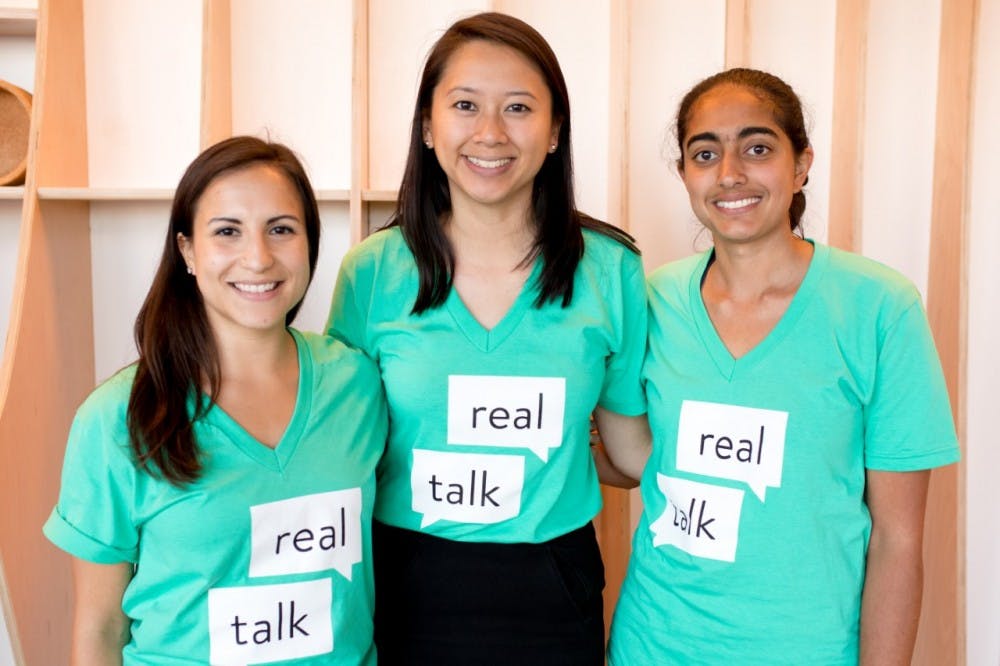Two UNC doctoral students are changing the way middle school students access sex education. Elizabeth Chen and Cristina Leos, both studying health behavior in the Gillings School of Global Public Health, and co-creator Vichi Jagannathan are finalizing their app "Real Talk" before it launches in the spring of 2018.
During her time working for Teach For America in eastern North Carolina, Chen noticed that sex education was something both wanted and needed by students in the school. She and a fellow teacher, Jagannathan, joined forces to address this education deficit. In December 2015, Leos joined their team.
The goal of the project is ultimately to reduce teen pregnancy, said Chen.
“Under that umbrella, we have really focused on building communication skills and being able to deliver high quality sex ed resources to teens," said Chen. The project is especially aimed at those who do not already have access to sex education in school.
Chen said they were initially skeptical about whether a mobile app would be the correct vehicle. Many of these schools are rural and usually identified as low resource. Still, Chen said they found that almost all the students had smartphones.
"Right now, we're really trying to commit to understanding what teens want through our app and building that to the fullest extent,” Chen said.
The team started to build the app just this fall, after receiving extensive human-centered design training through IDEO, a global design and innovation firm in San Francisco. The team received a $325,000 grant from Innovation Next, a program under The National Campaign to Prevent Teen and Unplanned Pregnancy.
This is the largest award ever given to UNC students at the University. The grant required that a technological piece be included in the greater vision of spreading innovation among teen pregnancy prevention programs.
In its current model, the app features story tiles in a layout similar to an Instagram feed. Users can read a story presented in a form mimicking a text message conversation, often including themes such as bullying, puberty or relationships. At the end of each story is a high quality sex education resource, encouraging students to click on these links and access credible sources.




